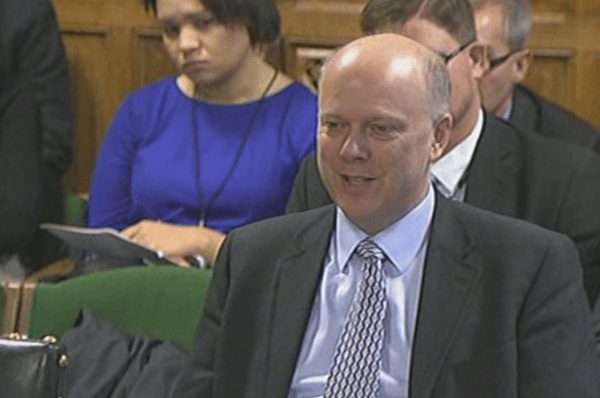Chris Grayling today defended the Government’s decision to square up to the European Court of Human Rights on prisoner votes. The Justice Secretary seemed to enjoy his hour and a half before the Justice Select Committee, and used it to make a number of typically forthright assertions about the criminal justice system.
Labour MP Jeremy Corbyn attacked the minister for the government’s decision to refuse to give prisoners the vote, saying:
‘What message does this give to other countries if you are inviting the British parliament and judiciary to pick and choose which ECHR judgements it enacts or doesn’t enact? In any event, you could easily agree with the ECHR by a very minimal level of prisoner voting. What right does that give you then to criticise Hungary for its treatment of gay people and travellers, for Russia for its denial of public assembly in many cases. Does it not just diminish us and diminish the whole process?’
Grayling replied:
‘No, I don’t accept that. I think the fundamental problem here is that the European Court of Human Rights has moved a long way from the views of the original conventions back in the 1950s.’
Corbyn then asked whether this meant that Grayling intended to ‘pick-and-choose’ the judgements from the ECHR that it did or didn’t agree with. Grayling replied that Britain was not the only country in a stand-off with the court, saying:
‘What I would say is I think there is a huge difference between the fundamental principles of human rights which is that you should have a right, if you are a political dissident, or if you committed a crime, to have a fair trial in an open court, to be properly legally represented and able to defend yourself, a huge difference between that and some of the issues that the European Court of Human Rights has been focusing on, not just in this country but in other countries as well.’
He was also rather blunt on his department’s progress in cutting the number of foreign prisoners:
‘I have got a very clear goal in trying to reduce that number but what I would say is that it is not as easy as it appears because what it costs us, it would then cost somebody else and what I am not in the business of doing is taking a rapist from a country in Africa who is in jail here and saying, “well, you go back to Africa and we are not worried if you are in jail or not” because I don’t care where they are: I don’t want dangerous criminals walking the streets.’
Grayling is clearly relishing his new Secretary of State position, including these battles: he could barely restrain himself from grinning throughout the hearing. He may actually feel rather more relaxed than his predecessor Ken Clarke, at the moment, for the most controversial battle on justice policy is the Justice and Security Bill, which remains Clarke’s responsibility.







Comments